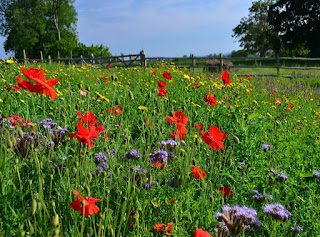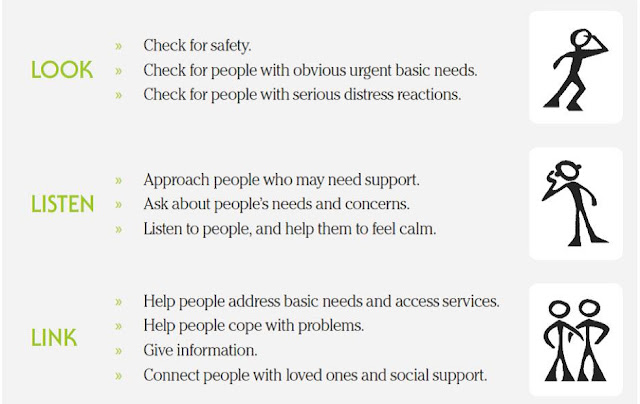In the last four posts I’ve been thinking about suffering
and hope – ways to listen better to the
suffering of others, how sharing brings the beginning of hope, the need to be
thoughtfully positive, and how to offering practical hopefulness.
It does work.
Darren’s been coming to see me for a while now. He is still alive. He still mostly rants, and
I still mostly listen, but there’s less booze and fewer fights in his life.
He’s got a girlfriend and a dog, and his drumming skills have found outlet in
two local bands – one with a possible recording contract. We’re both beginning
to feel more hopeful.
|
To be able to offer hope to people in distress,
we need to take good care of ourselves.
With the frequent pressures we find in our own lives,
whether its hassles within our families or problems in work – or an awareness of our own frailty and mortality in the face
of traumatic accident or life-threatening disease – when we find ourselves trudging
through treacle, we do well to recognize our own suffering and give
ourselves the freedom to hope.
I’ve written before about how helpful
it can be to create a well-being
recipe, where you write down a list of all the ingredients of life that
help you flourish, and then use them to build up something positive when you’re
feeling down or harassed.
It’s good to refresh the ingredients
from time to time. Ironing shirts is still
on my list, but I’ve added in mindfulness meditation, and parkruns are now part
of my own well-being recipe.
And it is great to have fresh
starts, to try out new experiences we’ve never had before. And what could
be fresher than meeting my brand new grandson Heath, born just a few days ago
– welcome into the world!
For Heath, and for everyone: in those
times when life gets tough and you’re suffering, I can’t offer you better
words of hope than these, from Irish poet John O’Donoghue:
|
"On
the day when the weight deadens on your shoulders and you stumble, may the clay
dance to balance you.
 And
when your eyes freeze behind the grey window and the ghost of loss gets in to
you, may a flock of colours, indigo, red, green, and azure blue come to awaken
in you a meadow of delight.
And
when your eyes freeze behind the grey window and the ghost of loss gets in to
you, may a flock of colours, indigo, red, green, and azure blue come to awaken
in you a meadow of delight.
And
so may a slow wind work these words of love around you, an invisible cloak to
mind your life."


